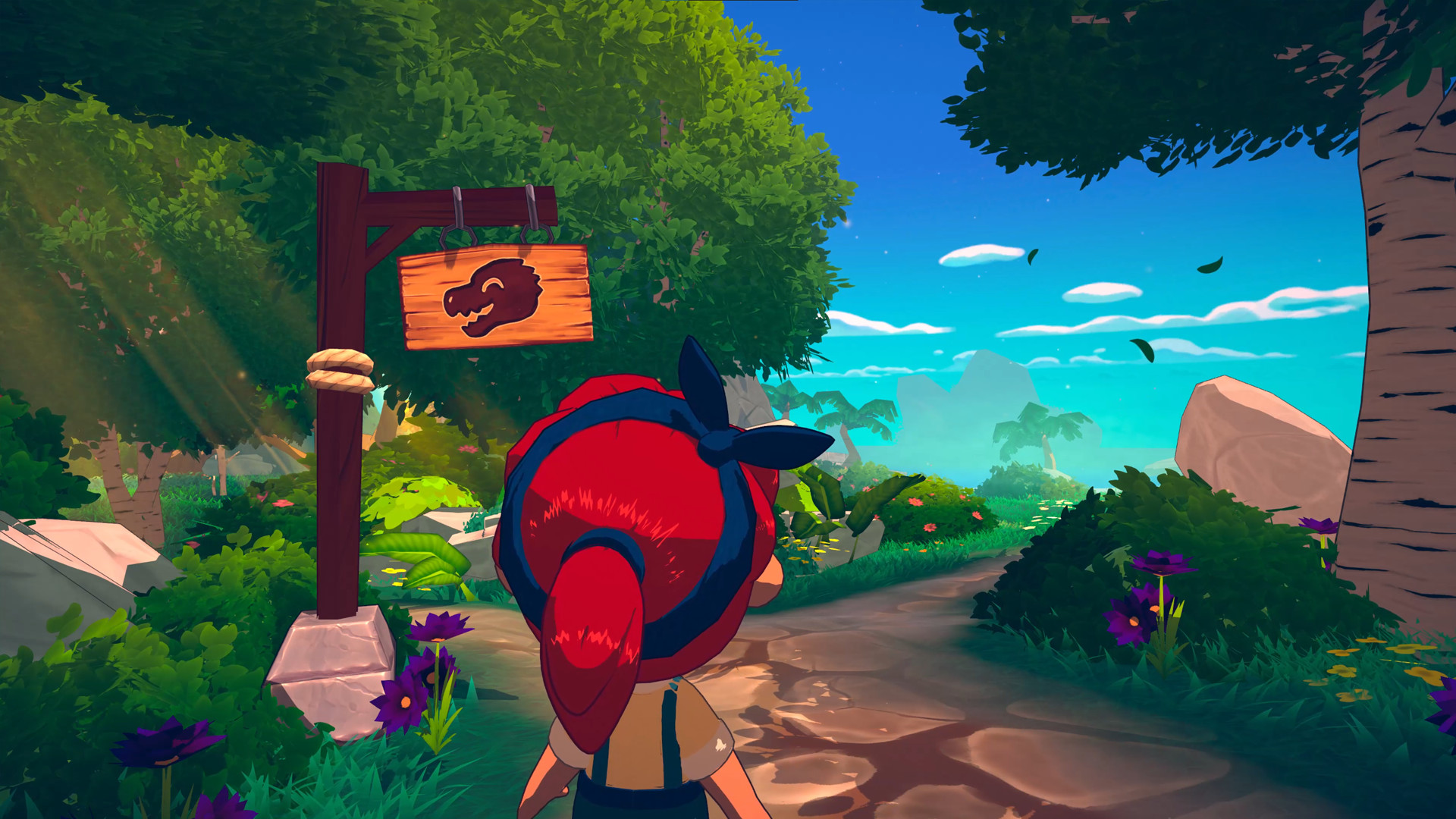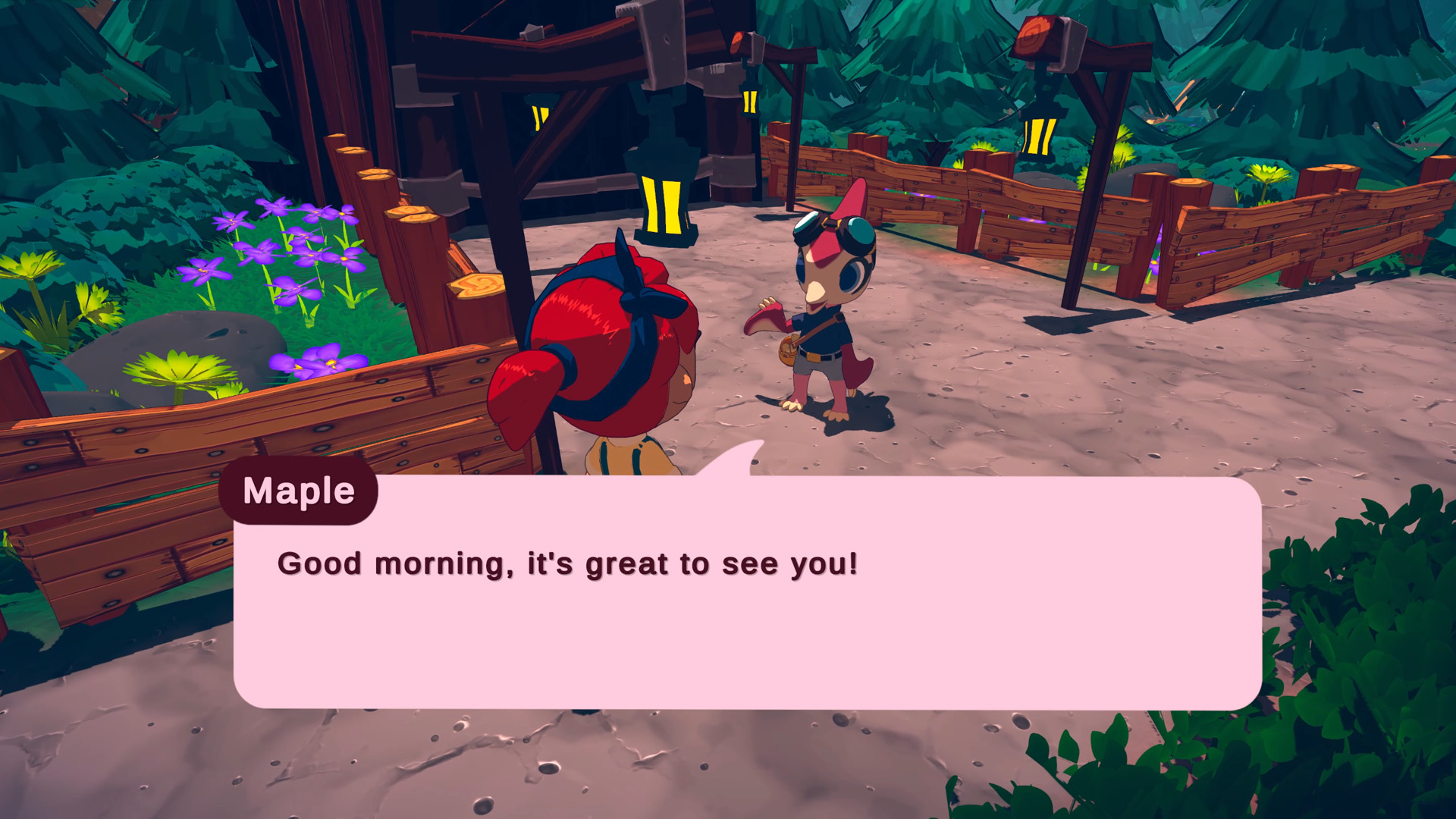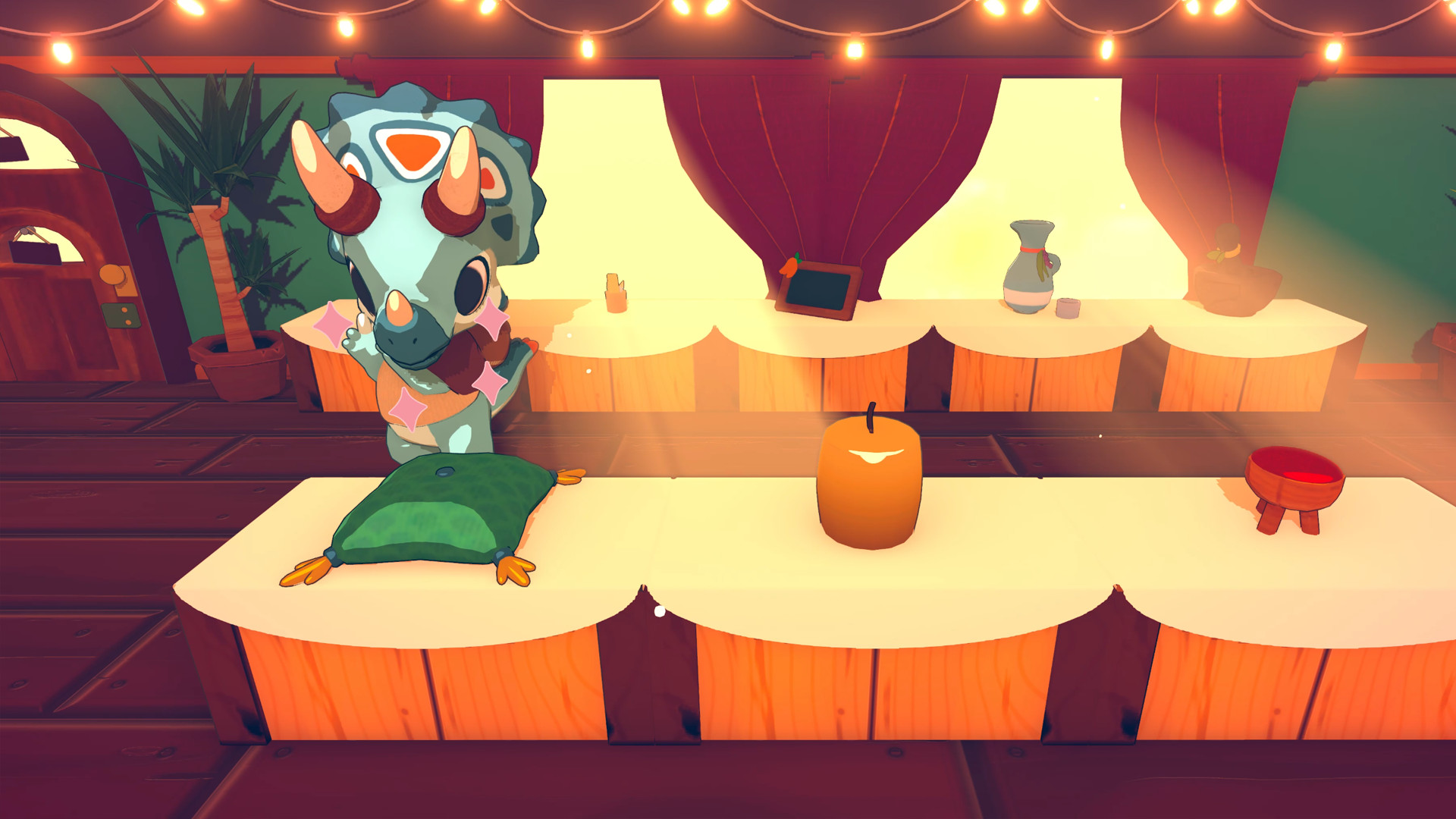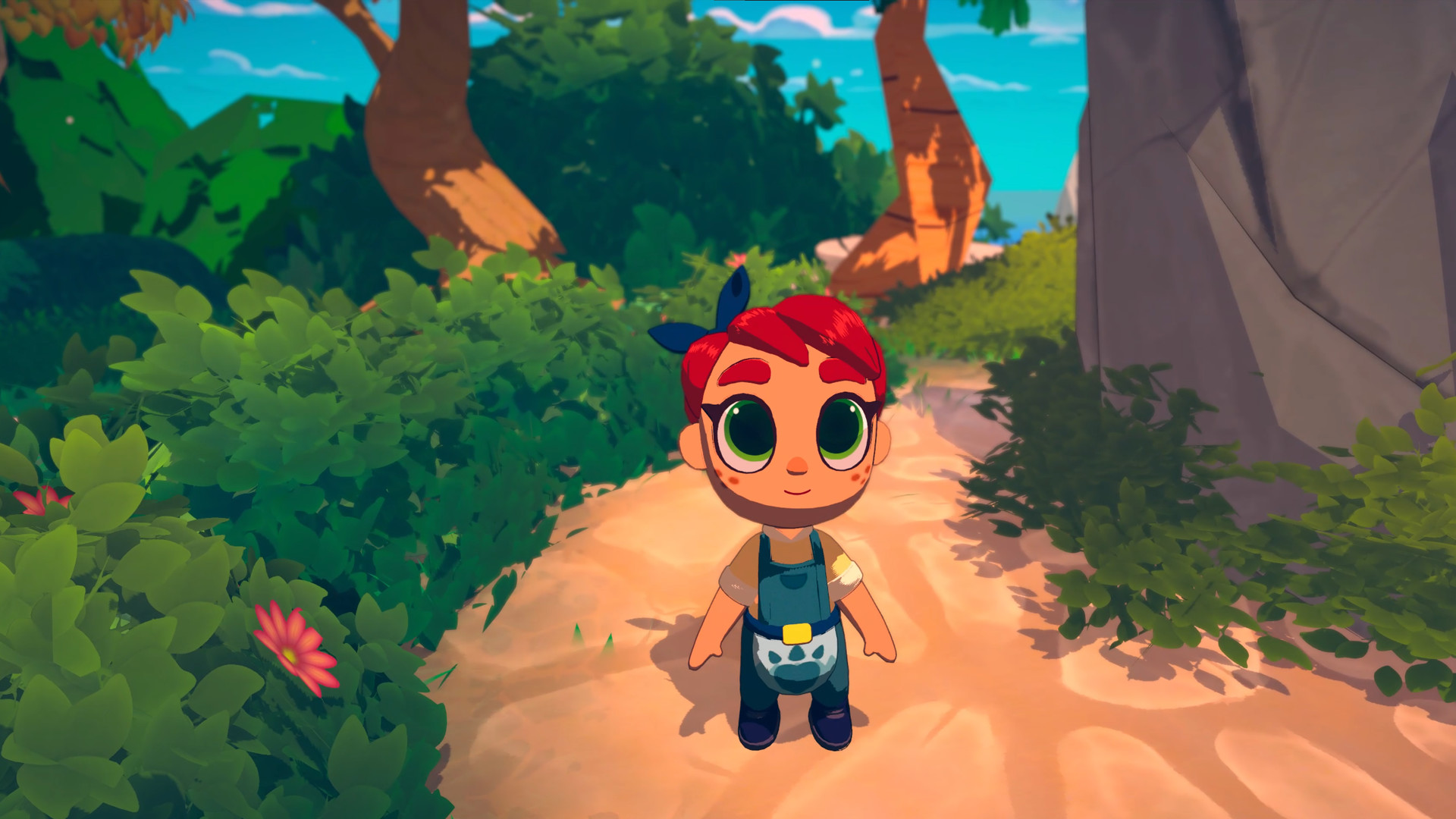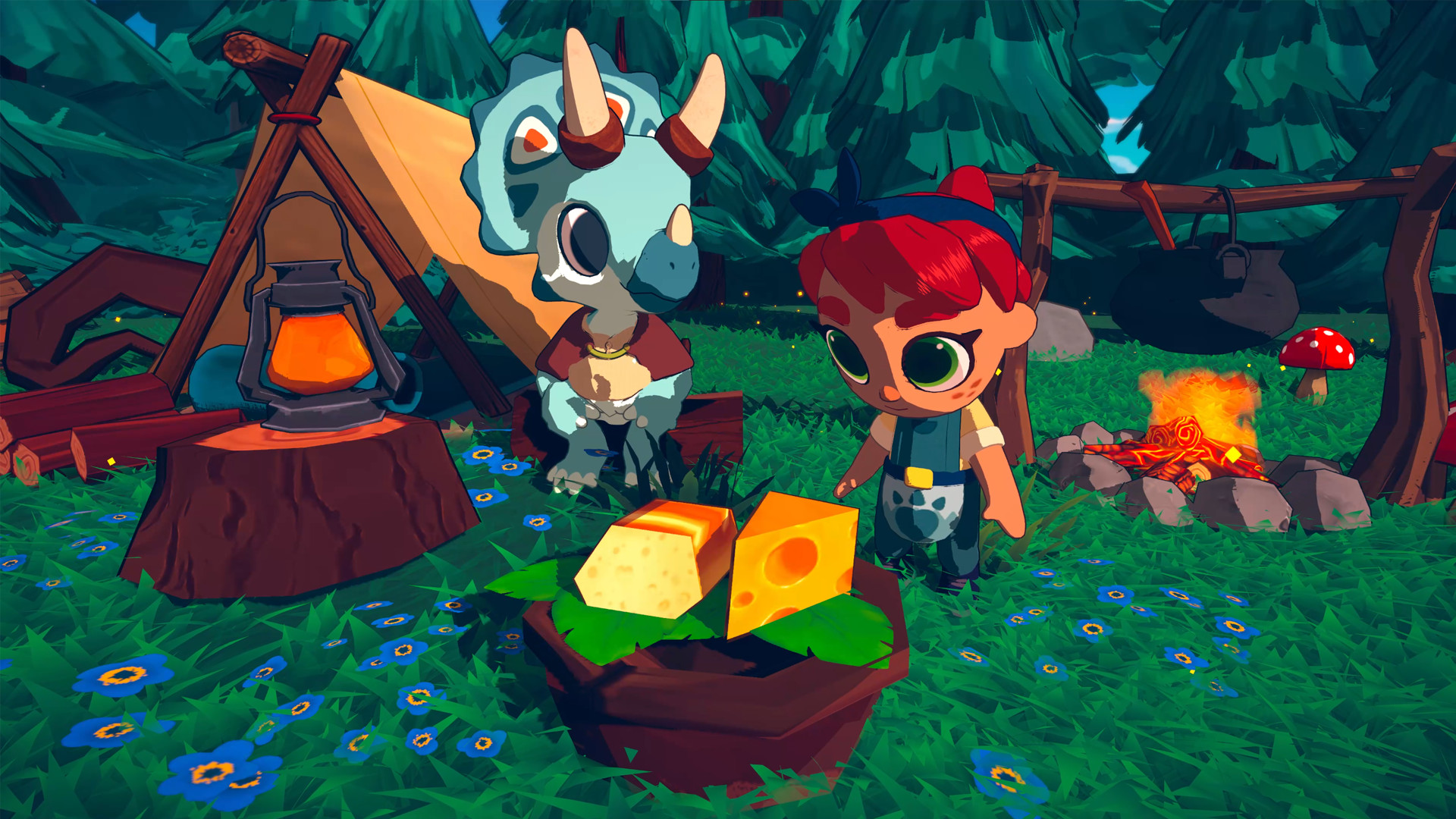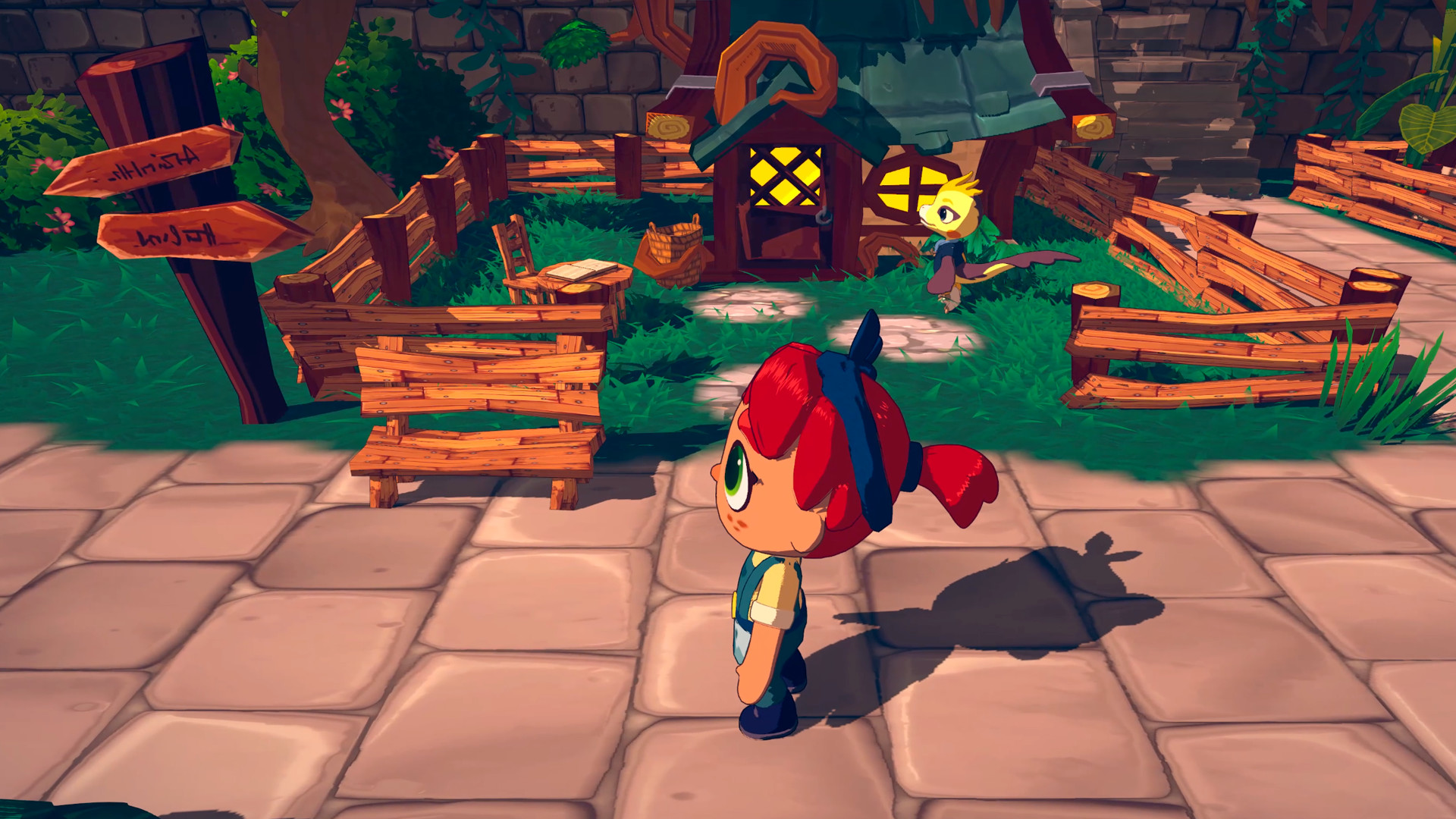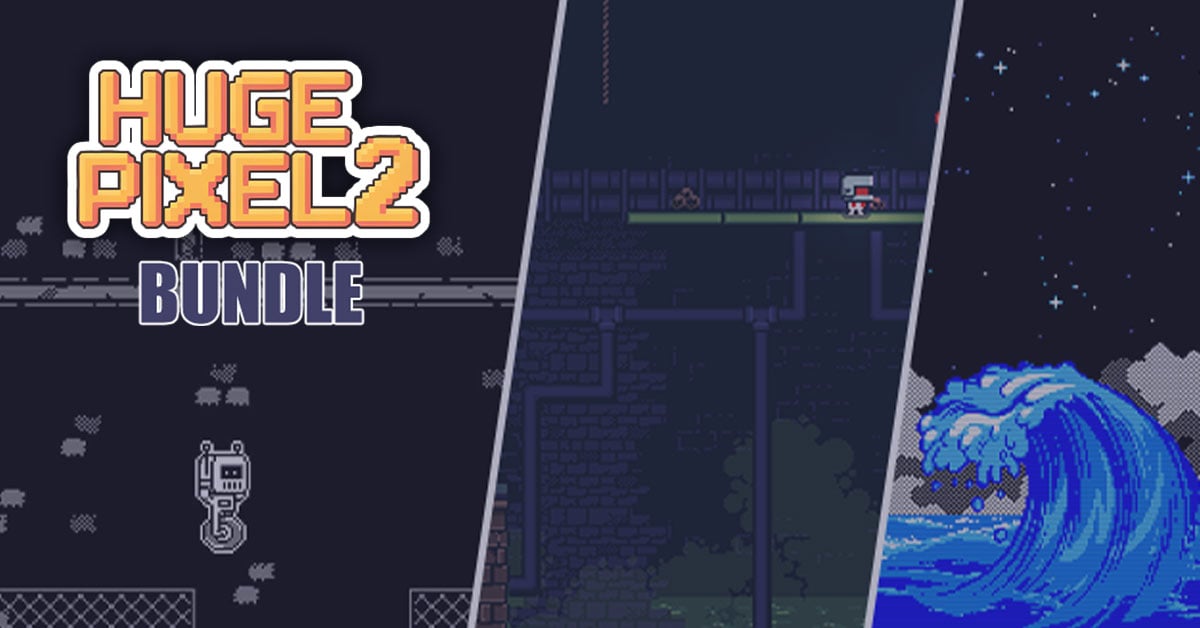

Amber Isle is a shop management/social sim set in a quaint, friendly world of prehistoric animal villagers called Paleofolk!
Tasked with opening the only shop in a small, sleepy village, you find yourself crafting and selling items to solve unique problems of the unusual clientele. A table big enough for a brontosaurus, a water-proof picnic set for a plesiosaur, or a special toothbrush for a sabre-toothed cat!
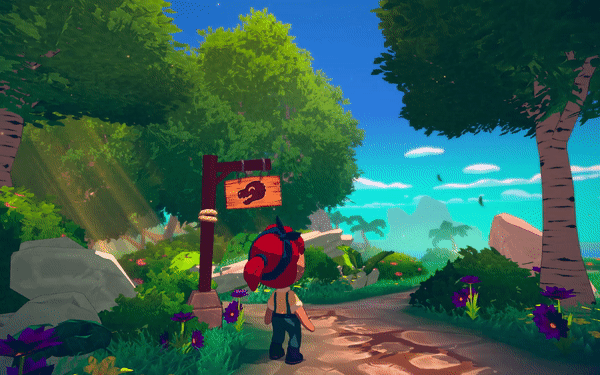
By exploring and upgrading the isle, discovering new recipes and befriending customers, eventually some Paleofolk will want to move in and become neighbours. Make the shop of your dreams, befriend a cast of dinosaur characters and bring the village back to life!

Restore an old cottage into your very own shop! Customise the layout, decor and stalls to your choosing and get ready to welcome customers! The more welcoming your shop is, the more visitors you’ll see!
Explore the village to collect resources like stone and wood (or even trade and buy them from the Paleofolk villagers!). When you return home, you can choose a recipe to craft from your ‘Recipe List’. You can unlock new recipes by completing quests, increasing your friendliness with the Paleofolk in your village or mastering old recipes. Then set the items out for sale in your shop!
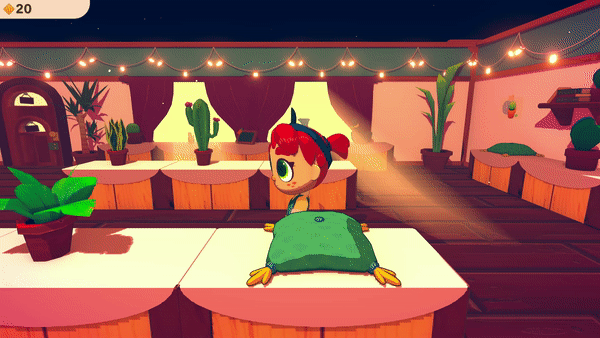
After mastering basic crafting, you will unlock the ability to create custom in-game designs for your items! You can create your own series of paintings, book covers, shirt designs and more! These can be sold in your shop and traded with friends- allowing you to create the shop of your dreams (or memes….)!
By running a successful shop, you can even donate to the village’s expansion and improvement. Create features that meet the needs of different Paleofolk, such as paths, recreational areas and water features. The more accessible the village is, the more Paleofolk will want to move in!

There’s a diverse cast of prehistoric characters to meet and befriend during your time in Amber Isle. Paleofolk have unique personalities, preferences and habits and come in all shapes, sizes and species! From the bulky brachiosaurus to the mini microraptor, all Paleofolk live happily side by side. And it’s not just dinosaurs- there are ice age mammals, Permian amphibians, marine life, even some invertebrates and more! All with their own shopping needs and special requests...
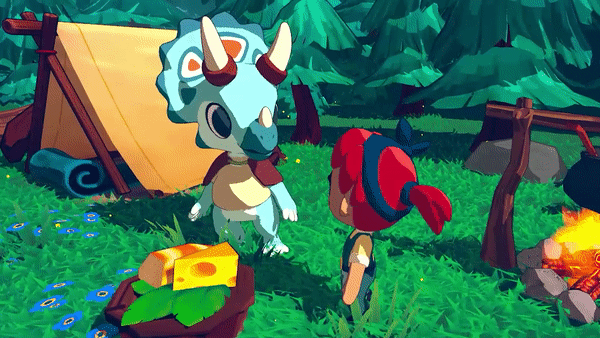
By chatting to Paleofolk and completing custom orders, you can befriend them and even hang out at their houses! Each Paleofolk character is unique, with their own dialogue, hobbies and personal goals/aspirations. The village will change and unlock new features depending on which Paleofolk characters you befriend or invite to live there!
Devlog 2 | Q&A with Locadile, Amber Isle's Localization Partner
A character from a more urban setting might use more contemporary or colloquial expressions, while a more rural or rustic character could have phrases that feel older or more traditional. Another option is to "dirty up" the grammar a bit to give a character a certain personality. For instance, we transferred certain phrases in a "cowboy dialect" so that a "Yeee-up" became "Eeeh gi" in Italian. For the "Australian accent", we just used local phrases that illustrate a laid-back attitude so that the "G'd evenin'!" became "Bsoir !" in French."

""Kipper Goodswoop" was also a bit more challenging. He was introduced as "Uses simple language and speaking patterns. However, he isnt stupid. He just manages to boil things down to their simplest forms to communicate." The linguists had to be careful to balance "simple language" and "not stupid", so that this lovely character was not misunderstood. And for the Asian teams, the snobbish tone of "Jeophery Goldcrest" was the most brain-racking, as it was hard to find equivalents that would adequately carry over his dramatic lines, which create such a unique and linguistically rich character."

[i]That? A piece of cake.
We are fond of, and good at,
these kind of word games.[/i]
In general, songs, poems and Haikus are a bit trickier to translate as they demand a certain syntactical structure. In the case of a Haiku, it needs to be three lines with syllable counts of 5-7-5. So, while they are fun to create, one also needs to keep the intended meaning, the form and emotion in mind. It is therefore never so much a strict recreation, but more a creative reinterpretation of the original - in other words: A very fun challenge that makes game localization so special and wonderful. Languages such as German and Spanish, which are famous for their long words, are of course given a little bit of an extra challenge, but nothing is impossible. While all the teams had a good time here, the creativity of the Chinese team was tested: In its original Japanese form, a Haiku is easy to transfer to Chinese, but because the source is in English, this is a whole different beast. So instead of going for a Haiku, the Chinese version presents "poems" that allowed for a more fun and engaging end result."
In addition, we asked the wonderful LQA team, who supported us tremendously during the localization, to pay close attention to this matter to make sure that the important ideas of inclusivity are well presented in the game."

It is not surprising that some teams worked with printed out cheat sheets or a mini-database to keep an easy overview. With all that in mind (or on paper), we modeled our localized Paleofriends accordingly, so that depending on the info provided for each of the characters, the more formal or archaic or casual or cheeky or sarcastic or whatever-you-can-think-of tones come off as authentic and natural in the localized languages. So through our choice of words, we hope the players can tell that Clawsworth is the grumpy sort, that Maple is kind to a fault, that Chip just has too much energy, or that Malik is kind of shady."

But we will of course spill the tea a bit. For the gendered languages, Mirage was a bit more challenging to localize as they are a non-binary character. We therefore adopted a neutral tone throughout Mirage's dialogue by using inclusive language, adapting sentence structures, and opting for gender-neutral words wherever possible. This approach was essential not only to stay true to Mirage's character but also to ensure that players who identified as non-binary would feel seen and respected. And all the new revelations surrounding this character also kept us on the edge of our seat!"
Thanks for reading our localization devlog. Amber Isles localization was done by the Locadile team: Please see the game credits for a full overview of all the localization contributors.
See you soon folks!
Hey folks!
We are back with more paleofolk localization tales from our partners at Locadile. If you missed the first part of this devlog you can find it below:
https://store.steampowered.com/news/app/1663040/view/506192738774942638
Localization Tales - Dev Log 2
Q: How did you handle localizing the various dialects in Amber Isle?
"How does one handle accents in the dialog of games that dont contain voice-overs? Tastefully! Dialects usually pose one of the biggest challenges as they generally don't translate well, and could easily be either not understood at all, or read like a caricature - potentially even as offensive, discriminatory, or racist. In order to avoid any demeaning associations, we aimed to tastefully render the different dialects so that the regional diversity is presented by focusing on incorporating idioms, localisms (local cultural preferences), taglines, and catchphrases that would be familiar and relatable to local players, and could be identified as markers for the different backgrounds of the Paleofolks.A character from a more urban setting might use more contemporary or colloquial expressions, while a more rural or rustic character could have phrases that feel older or more traditional. Another option is to "dirty up" the grammar a bit to give a character a certain personality. For instance, we transferred certain phrases in a "cowboy dialect" so that a "Yeee-up" became "Eeeh gi" in Italian. For the "Australian accent", we just used local phrases that illustrate a laid-back attitude so that the "G'd evenin'!" became "Bsoir !" in French."
Q: Which Paleofolk was the most challenging to localize, and why?
"For a lot of languages - apart from French for obvious reasons - "Rusty Trompe-Le Flair" posed a bit of a challenge, because of his French accent and the fact that his lines are often playful, charming, and full of French cultural references. So the teams had to negotiate the question: "How much French is too much French?" And on occasion also find more commonly known French expressions for the individual languages that might differ from the original."
""Kipper Goodswoop" was also a bit more challenging. He was introduced as "Uses simple language and speaking patterns. However, he isnt stupid. He just manages to boil things down to their simplest forms to communicate." The linguists had to be careful to balance "simple language" and "not stupid", so that this lovely character was not misunderstood. And for the Asian teams, the snobbish tone of "Jeophery Goldcrest" was the most brain-racking, as it was hard to find equivalents that would adequately carry over his dramatic lines, which create such a unique and linguistically rich character."

Q: How difficult (or easy!) was it to localize a Haiku?
"To quote our fabulous Italian team here when posed with this question:[i]That? A piece of cake.
We are fond of, and good at,
these kind of word games.[/i]
In general, songs, poems and Haikus are a bit trickier to translate as they demand a certain syntactical structure. In the case of a Haiku, it needs to be three lines with syllable counts of 5-7-5. So, while they are fun to create, one also needs to keep the intended meaning, the form and emotion in mind. It is therefore never so much a strict recreation, but more a creative reinterpretation of the original - in other words: A very fun challenge that makes game localization so special and wonderful. Languages such as German and Spanish, which are famous for their long words, are of course given a little bit of an extra challenge, but nothing is impossible. While all the teams had a good time here, the creativity of the Chinese team was tested: In its original Japanese form, a Haiku is easy to transfer to Chinese, but because the source is in English, this is a whole different beast. So instead of going for a Haiku, the Chinese version presents "poems" that allowed for a more fun and engaging end result."
Q: Inclusivity in Amber Isle is a very important pillar, with LGBTQIA+ representation, options for gender neutrality, and queer themes. What challenges did this pose for localization?
"From a linguistic point of view, this posed probably the biggest challenge, as the idea of respectful gender neutrality is not yet linguistically regulated in the languages that Amber Isle was localized into. Everything has a gender, which makes it harder to convey this important concept of inclusivity, especially when keeping the flow of the narrative and the uniqueness of the characters in mind. It required us to structure sentences in a certain way to avoid the use of gendered pronouns, or adapt phrases so that the gender of a character or the reference to the player are never assumed. As an example, non-binary characters and the player are always referenced by name. By adjusting phrases and choosing more inclusive options we hope the game feels welcoming to all players, regardless of their gender identity.In addition, we asked the wonderful LQA team, who supported us tremendously during the localization, to pay close attention to this matter to make sure that the important ideas of inclusivity are well presented in the game."

Q: With nearly 50 Paleofolk, how challenging was it to localize everyone in a way that maintained their unique traits, quirks, and voice?
"It was challenging, but also a wonderful example of the true joy of human-made game localization! The goal is always twofold here: Maintaining the essence of what makes the character who they are, by creating a "new" character through localization that the players will feel connected to. Here, the provided information helped a lot, because for each (!) of the 48 characters we were given their name, gender/pronouns, age, job, species, size, region/nationality, education level, personality, interests & hobbies, speaking style, and voice, as well as character references, narrative goal/themes, character type, in-game relationships, writing guidelines, player interactions, biography, backstory explanations, and story arc exploration.It is not surprising that some teams worked with printed out cheat sheets or a mini-database to keep an easy overview. With all that in mind (or on paper), we modeled our localized Paleofriends accordingly, so that depending on the info provided for each of the characters, the more formal or archaic or casual or cheeky or sarcastic or whatever-you-can-think-of tones come off as authentic and natural in the localized languages. So through our choice of words, we hope the players can tell that Clawsworth is the grumpy sort, that Maple is kind to a fault, that Chip just has too much energy, or that Malik is kind of shady."

Q: Spoiler: Did the mysteries surrounding Mirage provide any unique challenges for localization?
We are afraid that this is classified informationBut we will of course spill the tea a bit. For the gendered languages, Mirage was a bit more challenging to localize as they are a non-binary character. We therefore adopted a neutral tone throughout Mirage's dialogue by using inclusive language, adapting sentence structures, and opting for gender-neutral words wherever possible. This approach was essential not only to stay true to Mirage's character but also to ensure that players who identified as non-binary would feel seen and respected. And all the new revelations surrounding this character also kept us on the edge of our seat!"
Thanks for reading our localization devlog. Amber Isles localization was done by the Locadile team: Please see the game credits for a full overview of all the localization contributors.
Join our Discord!
Want to keep up to date with the latest news around Amber Isle, share your fan-art and interact with our dino-centric community? Join our Amber Isle Discord server here!See you soon folks!
Keep up to date with Amber Isle!
Amber Isle on X Amber Isle on TikTok Join Amber Isle's Discord[ 2025-02-12 14:00:42 CET ] [Original Post]
Minimum Setup
- OS: Ubuntu Equivalent Distro
- Processor: 2 GHz 64-bit CPUMemory: 4 GB RAM
- Memory: 4 GB RAM
- Graphics: OpenGL 3 Compatible GPU with 1GB Video RAM
- Storage: 2 GB available space
GAMEBILLET
[ 6382 ]
FANATICAL
[ 5887 ]
GAMERSGATE
[ 750 ]
MacGameStore
[ 1993 ]
INDIEGALA
[ 822 ]
FANATICAL BUNDLES
GMG BUNDLES
HUMBLE BUNDLES
INDIEGALA BUNDLES
by buying games/dlcs from affiliate links you are supporting tuxDB

